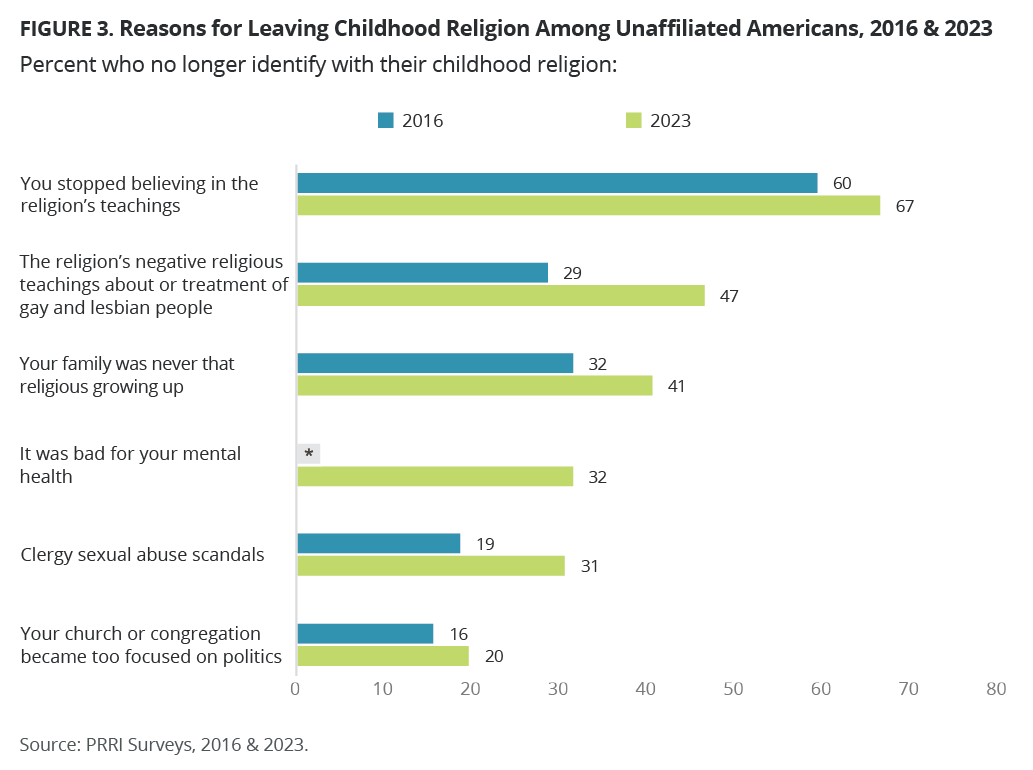This was not the headline. I would even argue that the PRRI numbers on that matter were inflated, as the question was posed in far too broad of a way. Instead of asking specifically about a particular religion’s teachings about gay or lesbian people as a reason for leaving their childhood religion, they phrased the reason option as, “The religion’s negative religious teachings about or treatment of gay and lesbian people.” Those are two different things, and if separated from each other would have arguably made “treatment of” a more significant issue than historic Christian orthodoxy.
No, the biggest and most concerning revelation of all was the number one reason people gave for leaving a faith tradition. Ready for it? 67% who left a faith tradition did so because they simply stopped believing in that religion’s teachings.

It’s not primarily a cultural rejection (as in rejecting traditional, historic Christian orthodoxy on such matters as all things LGBTQ). It’s not simply a yawning disinterest. Today’s religiously unaffiliated are increasingly simply rejecting the message itself.
They are, in short, card-carrying unbelievers. And unless something intervenes, their numbers will grow. Only 3% of Americans who grew up in a religiously unaffiliated home said they joined a religion.
But take heart. There can be an intervention. There is something the church can do that would, quite literally, change our world.
They can get back to evangelism. Not talking about evangelism, or exhorting people to evangelism, but actually doing evangelism in effective and arresting ways.
That will take change; that will involve death to self; that will demand the embrace of new and innovative approaches, not least of which is the embrace of the digital world; that will require answering questions the world is actually asking and connecting the gospel to those questions.
It will take work. Hard work.
So I suppose it all comes down to one thing:
How much do we really care?
This article originally appeared here and is used by permission.

